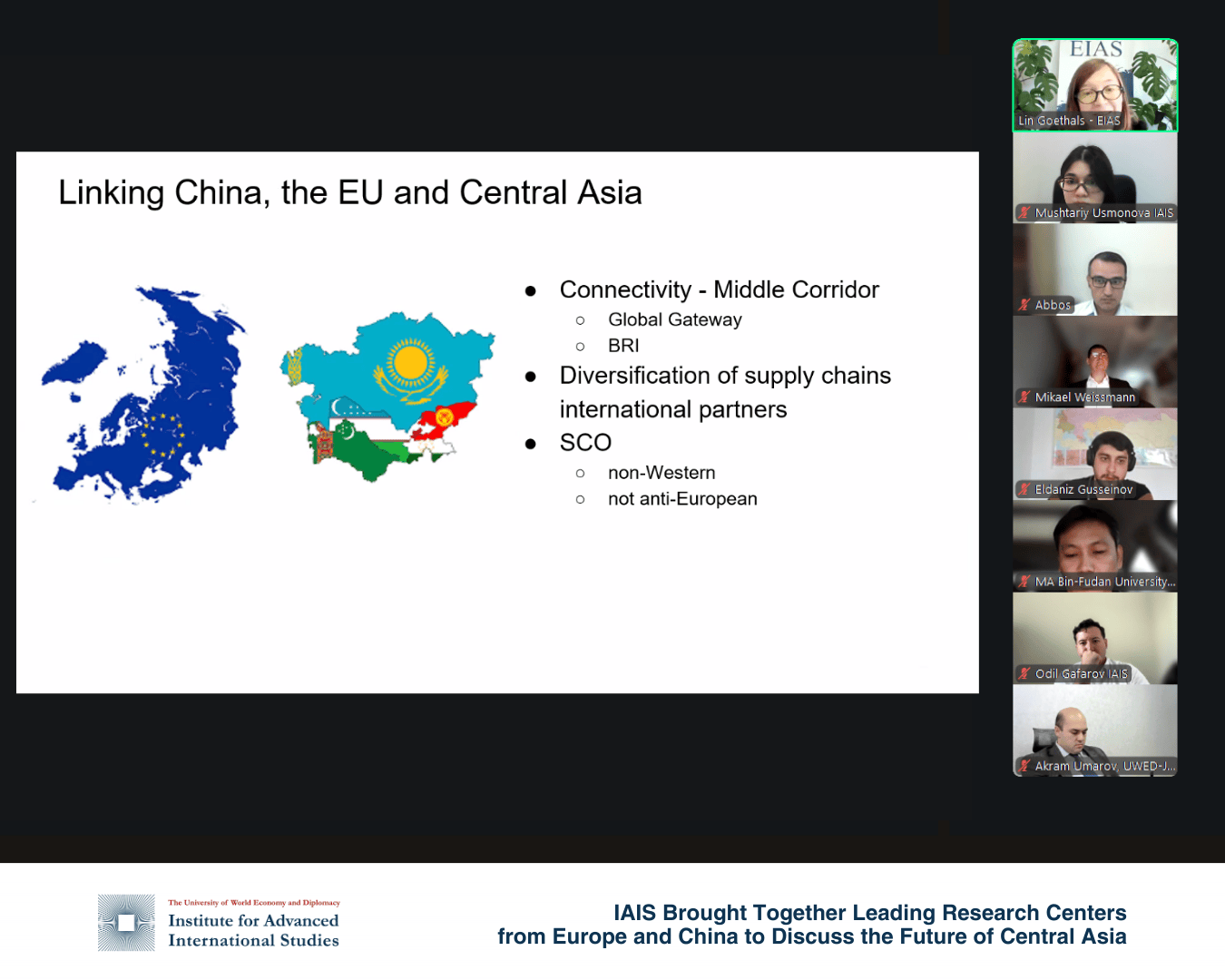
On September 17, the Institute for Advanced International Studies (IAIS) at the University of World Economy and Diplomacy held an international online roundtable on “Global Chains and Strategic Sustainability: The EU, China, and Central Asia in an Era of Geopolitical Risks, Technological Competition, and Regional Integration”.
Along with IAIS leadership and experts, researchers and analysts from the European Institute for Asian Studies (EIAS, Brussels), Shanghai International Studies University (SISU), Swedish Defence University, Ibn Haldun University (Istanbul), and Fudan University (Shanghai).
The first panel discussed the transformation of EU-China relations in the context of the “de-risking” strategy and the deepening politicization of economic ties. Experts noted that despite the growth of mutual distrust, there remain areas where the parties objectively need each other, in particular the climate and green agenda, digital transformation, and infrastructure development. Special attention was paid to the growing role of Central Asia as a link between Europe and China.
The second panel was devoted to the strategic position of Central Asia, which is seen not only as a transit corridor but also as a subject of multi-vector diplomacy. The prospects for the sustainability of transport routes, the impact of the Ukrainian conflict on the development of Eurasian corridors, as well as the challenges of raw material dependence and the need to move to higher levels of added value were discussed. Experts emphasized that the region could benefit from the interest of external powers if it strengthened internal integration and formed new models of sustainable cooperation.
The roundtable concluded that, despite the continuing differences between the EU and China, Central Asia is uniquely positioned to offer a space for pragmatic interaction and the formation of mutually beneficial solutions. Promising areas include the development of renewable energy, digitalization, infrastructure projects and new mechanisms for sustainable resource management.